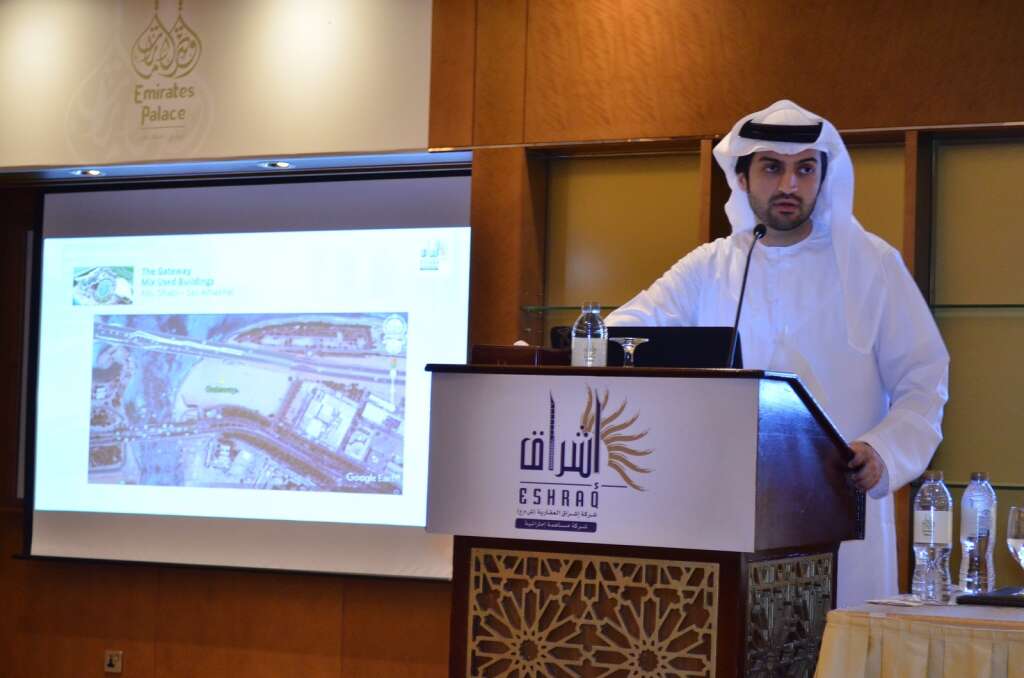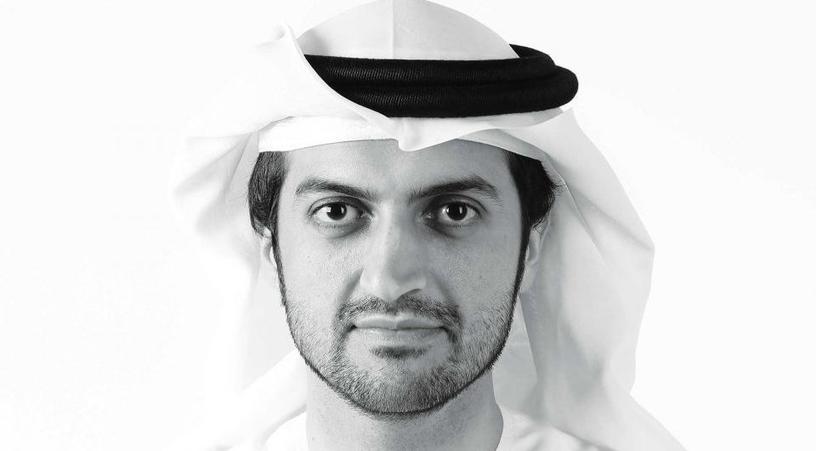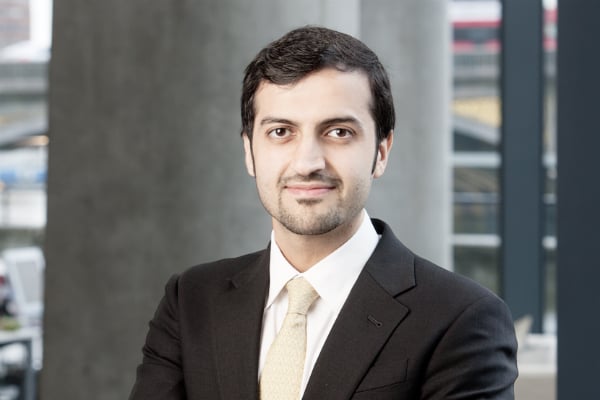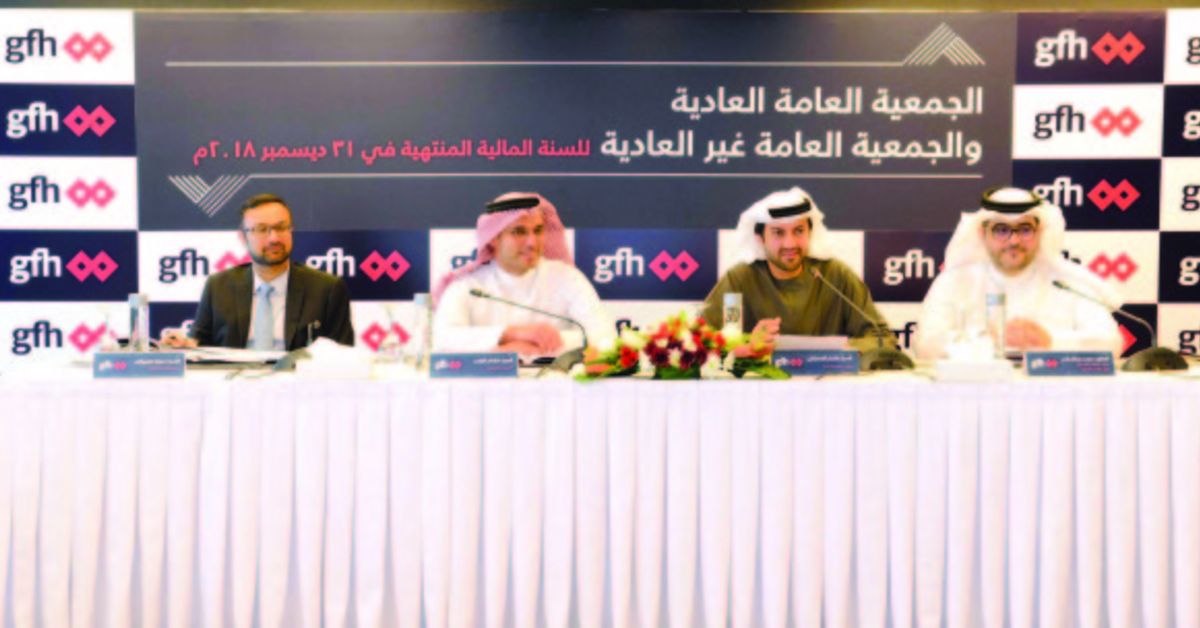https://www.marketscreener.com/business-leaders/Jassim-Mohammed-Al-Seddiqi-0C4FQM-E/biography/ He received a graduate degree from Cornell University and an undergraduate degree from the University of Wisconsin.
https://www.gfh.com/board-of-director/jassim-alseddiqi/ He brings extensive investment expertise, and is known for his dynamic and innovative approach, having pioneered investment strategies in the region.
https://www.cnbc.com/2018/04/18/cnbc-interview-with-abu-dhabi-financial-groups-ceo-jassim-alseddiqi.html
https://twitter.com/jassimalseddiqi
https://www.arabnews.com/node/1175136/business-economy In just a few years, Jassim Al-Seddiqi has become the “go to” financier in the UAE capital Abu Dhabi, and made the company he runs — Abu Dhabi Financial Group (ADFG) — one of the most important investing institutions in the Arabian Gulf. ………. Now Al-Seddiqi, 33, is increasingly switching his attention outside the UAE, and the new economic environment in Saudi Arabia is certain to play a big part in that global focus. “The Saudi privatization program and Saudi Aramco share sale will have a massive spillover effect for all of us,” the ADFG chief executive said. …….. ADFG has gone global in the real estate business, with high-end residential and commercial property, warehouses, shopping malls and hospitality assets across the UK, Middle East and Eastern Europe. …… The “Goldilocks” concept is a new one for regional investors. Al-Seddiqi aims to replicate the strategy of “activist shareholders,” where a shareholder actively influences management toward optimizing the value of the shares, which is something quite common in Western markets. He calls it “constructivism,” or constructive activism, and he has used the tactic in relation to Shuaa and to GFH Financial, the Bahrain-based firm whose shares are listed in Bahrain, Kuwait and Dubai. …….. “Typical opportunities which Goldilocks invests in are companies whose intrinsic values are not recognized by the public market due to complex corporate or capital structures, asset mispricings, under-researched or ‘below the radar’ coverage, inefficient management and the lack of industry or market expertise in extracting value. We seek to add value through board representation and management engagement while investing for the short- to medium-term,” Al-Seddiqi said. ……… Abu Dhabi could also be a model for how the Saudi Arabian financial center might develop over the coming years in the course of the Vision 2030 transformation away from an economy based on oil and public sector dependency. ……. the Kingdom’s $200 billion privatization program launched as part of the transformation program. …….. Lifting the driving ban was a very big thing ……… The Saudi economy is very important for the region. If you’re not involved there, you are not doing the job properly ……. Al-Seddiqi’s rise has been fast, and his ambition is big. One foreign banker in Abu Dhabi said: “He’s the rising force in the UAE financial scene, and could make ADFG into a regional financial powerhouse. He’s the face of the next generation in the Gulf.”
http://www.gfh-capital.com/board-of-director/jassim-al-siddiqi/
https://www.arabianbusiness.com/banking-finance/408595-master-of-the-turnaround Abu Dhabi Financial Group founding CEO Jassim Alseddiqi on what it takes to succeed - no matter what the economic conditions …….. how he’s gone about establishing and leading ADFG to become one of the largest private institutional investment houses in the Gulf region in just eight years. …….. ADFG has grown its assets under management to $20bn, with investments across platforms including debt, private equity, public markets, real estate and technology. And often there is a focus on special situations. Distressed debt? Bring it on. Event-driven situations requiring capital? Out comes the cheque book. “At the right price, we buy.” he insists. …….. We wait and see how markets or companies go up and down and then catch things as they fall ……. Bahrain-based investment bank GFH had lost 92 percent of its market value between 2008 and 2015. But since ADFG executed its turnaround strategy, the stock has gained 208 percent on a total returns basis. ……. “We call them fallen angels.” ……. ADFG is a brand that was born in adversity. …….. In November 2010, Alseddiqi was busy working with two colleagues to put together plans for a growth fund in the Middle East. “We prepared all the documents and in January 2011 we officially started the firm. And then the Arab Spring started,” he recalls. “So there went our growth thesis!” …….. Instead of rueing their bad luck, they pivoted to work with distressed opportunities. ……. “Those initial circumstances made it relatively easy for us to succeed in the subsequently difficult times that we have witnessed,” he says. ……. ADFG’s strong network, holistic platform and track record has made it easy to devise great opportunities that have become part and parcel of the firm’s operations. …….. “Origination sometimes is more important than execution and exit,” he adds. “It used to be more difficult in the past, especially when we started. But since everything was in shambles when we started, origination was really anything you touch.” ……. But what really goes wrong at these companies for them to land in trouble in the first place? The master of turnarounds chalks it all down to just the one thing: management. …… Asked if market conditions are also to blame, Alseddiqi’s response is an emphatic ‘no’. …… Turnaround tactics to weather these storms include the popular US-style zero-based budgeting process, leveraging the power of the ADFG network and its companies for business development, and a management overhaul. “Zero-based budgeting means you start from zero and then add incrementally to reach a stage where you can function, rather than starting with a budget and then cutting-down from it,” the CEO explains. “Turning around is really two things: stopping the bleeding – cost cutting – and then growing,” he adds. …….. In the case of Shuaa, for instance, ADFG took over the company’s board in the December of 2016 when it bought a 48 percent stake. Between 2009 and 2016, Shuaa had lost a total of AED2bn. “We looked at the cost of the firm,” Alseddiqi discloses. “Then we eliminated almost all the fat. But that doesn’t mean you are firing people. In fact, we have more people in Shuaa today than two years ago. We go for cost efficiencies, and we also started using our platform to give it the business. Plus we shut down some non-performing units and revived others that were failing.” ……. “We pushed and recovered assets from ex-management of about $500m, and we gave it a lot of business,” Alseddiqi says. “We supported their investment products by bringing clients to invest in them.” ……. The result, he adds, is that GFH is today the most profitable listed investment bank in the Middle East. …… “There’s nothing Middle Eastern about Abraaj,” he asserts, adding that it is “unfortunate” and “disappointing” that the scandal is being linked with the region. …… “It’s not like a gang of Middle Eastern people are running Abraaj. The board is made up mostly of Western figures and the team is not majority Middle Eastern. They have an office in New York, in London, in Columbia, Brazil, Singapore... the base is in the Cayman Islands. So what is Middle Eastern about Abraaj? ……. “If you invest in a growing company then you keep on growing,” he says. “But what’s special is turning around something. It proves that what was coal can also become a diamond.” ………. In addition to his prime designation at ADFG, Jassim Alseddiqi is also a sought-after board director and chairman for major companies, actively participating in the development of these companies’ strategic plans and leading their growth and development. …….. He was appointed to the advisory board of the MIT Technology Review Arabic and been an observer member of Hyperloop since 2017.
Master of the turnaround: ADFG's Jassim Alseddiqi https://t.co/oqO5uTTZjC @jassimalseddiqi
— Paramendra Kumar Bhagat (@paramendra) October 28, 2019
@JassimAlseddiqi Mr. Al Seddiqi. In you I find a renaissance man! :)
— Paramendra Kumar Bhagat (@paramendra) October 28, 2019
If you want to master something, teach it. 🧠 pic.twitter.com/ILdcfYBHLK
— Richard Feynman (@ProfFeynman) October 28, 2019
منذ 2014، شهدنا نمواً مطرداً نتيجة لقاعدتنا المالية الراسخة و خطوط الأعمال المدرة للدخل، والتي تشمل الصيرفة الاستثمارية و التجارية، التطوير العقاري والخزانة والاستثمارات المباشرة. بين 2014 - 2018 ، حققنا معدل نمو سنوي مركب من الأرباح الصافية الموحدة بنسبة 61.27٪. #TeamGFH pic.twitter.com/9Ze9zRwYxs
— GFH Financial Group (@GFH_BSC) October 28, 2019
Stock returns since IPO:
— Jon Erlichman (@JonErlichman) October 27, 2019
Microsoft: +144,651%
Adobe: +120,171%
Amazon: +89,840%
Cisco: +63,855%
Nike: +50,499%
Apple: +42,552%
Starbucks: +24,720%
Netflix: +24,984
Disney: +17,222%
Mastercard: +5,774%
Tiffany & Co: +5,156%
Salesforce: +3,400%
Visa: +1,516%
Facebook: +391%
Not only excellence in healthcare, but also in design. Congratulations to @specializedrh @ImkanProperties @DoctorMishal pic.twitter.com/J81WFdYBXO
— Jassim Alseddiqi (@JassimAlseddiqi) October 25, 2019
Another Soulful place by @ImkanProperties coming soon... pic.twitter.com/7XJGgLP2kQ
— Jassim Alseddiqi (@JassimAlseddiqi) October 25, 2019
The World’s Most Innovative Universities 2019 @Cornell ✌🏻 https://t.co/8cE6NV0qkr
— Jassim Alseddiqi (@JassimAlseddiqi) October 24, 2019
The world has made incredible progress toward the goal to #endpolio thanks to partners like @MohamedBinZayed and the UAE. https://t.co/80j0A3MyJg
— Bill Gates (@BillGates) October 24, 2019
@500Startups, the most active early-stage investor in the world, just released its first Corporate Venture Capital report. 👌#500strong https://t.co/g2ou6Zgr3B
— Jassim Alseddiqi (@JassimAlseddiqi) October 17, 2019
— Mustafa Kheriba مصطفى خريبه (@MustafaKheriba) October 28, 2019
Something is not right... #OOTT pic.twitter.com/R5T5lxCXCl
— Jassim Alseddiqi (@JassimAlseddiqi) November 9, 2019
The coke looks suspicious.
— Paramendra Kumar Bhagat (@paramendra) November 9, 2019
Turnaround Artist
— Jassim Alseddiqi (@JassimAlseddiqi) November 25, 2019
Faith is the foundation, for this life, for the afterlife, for family life, for business, for success, and for trials and tribulations. #Faith is indispensable.
— Paramendra Kumar Bhagat (@paramendra) November 25, 2019
God gave us the senses with which we observe and the mind with which we reason. No conflict #religion #science.
— Paramendra Kumar Bhagat (@paramendra) November 25, 2019















